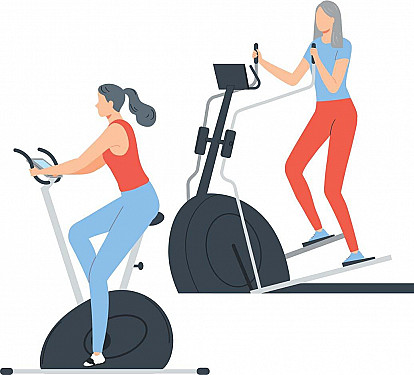Ask the doctor: When should I begin exercising?
Ask the doctor

Q. I'm a 23-year-old man who reads my mother's copy of the Harvard Health Letter. You often talk about how regular exercise improves health, particularly heart health. Since heart disease doesn't usually start until a man is in his 60s, at what age should I get serious about exercise?
A. Right now. Probably five years ago would have been even better. I will admit that most of the studies linking regular exercise with health benefits have been done in adults over age 50. But recently a study from doctors at Johns Hopkins was published in the medical journal JAMA Internal Medicine that is directly relevant to you. The study enrolled nearly 5,000 young adults, ages 18 to 30, and followed them for nearly 27 years. These study participants came from different geographic areas in the United States and included both males and females and people of different racial and ethnic groups.
The fitness of these young adults was assessed by how many minutes they could go in a treadmill exercise test before becoming too tired to continue. Fitness is strongly affected by how regularly a person exercises. The test was performed when a person enrolled in the study. It was repeated in most of the study participants seven years later, to see if their fitness was better or worse.
The people who were the most fit when the study began had a lower risk of developing heart disease and of dying prematurely. Every extra minute that the person could exercise on the treadmill lowered the risk of developing heart disease by 12% and the risk of death by 15%. The people who stayed fit when retested seven years later, presumably because they regularly exercised, also had lower risks of heart disease and death than those who did not. The least fit young adults were most likely to develop heart muscle that was straining to do its job.
Studies like this one, even when they involve so many people followed for so many years, cannot absolutely prove that regular exercise and fitness protect against heart disease and premature death. But they are quite strong evidence that this is so.
If this study continues to follow its participants for another 15 to 20 years, we could have even stronger evidence. The study would then be in a position to compare subjects who were fit as young adults and continued to be fit against subjects who were not fit as young adults but started regular exercise later in life. If that comparison showed that those who stayed fit all of their adult lives did best, it would be even stronger evidence of my advice to you: start a program of regular exercise now.
— Anthony L. Komaroff, M.D.
Editor in Chief, Harvard Health Letter
Disclaimer:
As a service to our readers, Harvard Health Publishing provides access to our library of archived content. Please note the date of last review or update on all articles.
No content on this site, regardless of date, should ever be used as a substitute for direct medical advice from your doctor or other qualified clinician.















